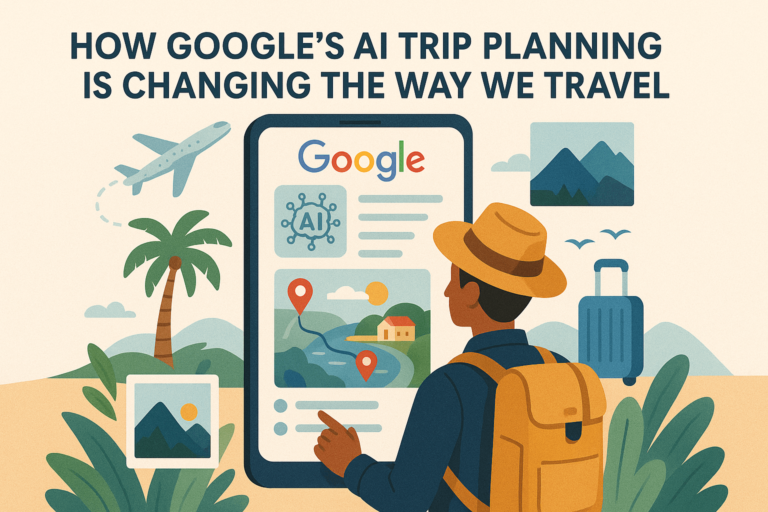Introduction
Google AI trip planner is revolutionizing the way we explore the world. With personalized suggestions and smart tools, planning your next trip is effortless. Travel planning is often perceived as a complex and multi-layered process involving intricate details and multiple decisions, from selecting destinations to finalizing accommodations and crafting daily itineraries. However, with technological advancements, especially in artificial intelligence, the landscape of travel planning is undergoing a transformative change. Google’s AI Trip Planning tools, integrated across various platforms like Search, Maps, and Gemini, aim to alleviate the stress associated with planning, offering personalized and streamlined solutions accessible through interfaces users are already familiar with. This article delves into how these tools work and their impact on the travel planning experience.
Features & Benefits
At the core of Google’s AI Trip Planning is a sophisticated machine-learning algorithm that comprehends and predicts user preferences based on past searches and online behaviors. This insight allows Google to propose customized travel itineraries that are rich in content and high in relevance. By analyzing data from various sources—encompassing popular tourist attractions, travel reviews, current accommodation availabilities, and pricing—Google delivers targeted and actionable itinerary suggestions.
In Google Search, these tools manifest as AI-powered overviews. One of the key benefits here is the ability to access comprehensive travel information without leaving the initial search page. Tailor-made itineraries that align with the traveler’s particular interests, budget, and time constraints are crafted, thus reducing the amount of time and effort one might invest in planning previously.
Furthermore, easy export options allow users to seamlessly transfer plans to Google Docs or Gmail for further customization or sharing, facilitating smooth collaboration among travel companions.
Enhancements in Google Maps and Gemini
Google Maps has also embraced AI enhancements by introducing functionalities like hotel price tracking and screenshot recognition. The former allows users to set alerts for their desired accommodations, ensuring they capitalize on price drops and special bookings offers, directly impacting financial planning positively. The screenshot recognition capabilities, meanwhile, convert stored images on devices into organized, searchable travel lists, augmenting convenience.
The Gemini platform further elevates the personalization offered by Google’s tools. AI agents called “Gems” are dedicated to delivering tailored assistance regarding destination recommendations and itinerary planning, ensuring all suggestions align closely with user profiles and previous travel experiences.
Pros and Cons
Like any tech innovation, Google’s AI Trip Planning comes with both advantages and limitations:
- Pros:
- High degree of personalization and real-time adaptability.
- Integrated features reduce the need for multiple apps and platforms.
- Enhanced with real-time data, providing accurate and updated travel recommendations.
- Cons:
- Heavily reliant on accurate user data, which may raise privacy concerns.
- Potentially overwhelming options and information for less tech-savvy users.
Comparison
When compared to other AI-driven travel platforms, Google’s tools stand out due to their seamless integration with widely-used applications like Google Search and Google Maps. This integration not only offers convenience but also ensures consistency and synchronicity across devices and user environments. Competitors may provide similar AI functionalities, but often require users to switch between apps or platforms, interrupting workflow.
Final Thoughts
The advent of AI in travel planning, exemplified by Google’s recent advancements, is redefining the way we plan and experience travel. By enhancing personalization, boosting accessibility, and ensuring real-time adaptability, Google’s AI Trip Planning tools offer a future-forward approach to travel management. While it does come with certain limitations and privacy concerns, the strides made in simplifying travel planning are undeniable. As AI technology continues to evolve, even more sophisticated and immersive features are expected to emerge, making travel planning an even more intuitive and enjoyable experience.
Ultimately, Google’s AI Trip Planning not only aids in more efficient travel planning but amplifies the enjoyment and fulfillment derived from exploring new destinations, empowering users to traverse the globe with improved confidence and ease.



